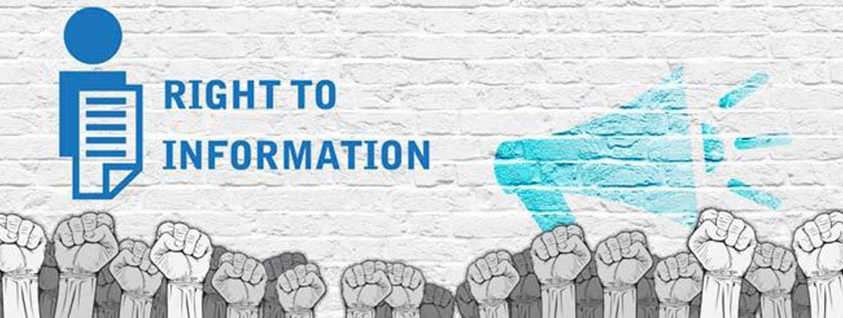By- Aprajita, School of Law and Governance,
Central University of South Bihar !!
India is the largest democracy where the people elect their representatives through casting votes in elections. The basic regime which the democracy operates is the transparency. After independence, there were several attempts to make the public authorities more transparent and accountable to the public, but it was the 179th report of Law Commission of India in 2001, based on Article-19 of the International Covenant on Civil and Political Rights, laid much emphasis on accountability and transparency in the functioning of the government. Upon this recommendation, in 2002, the Freedom of Information Act was passed, which went through several changes and the outcome was the present day Right to Information Act, 2005.
The law covers bodies owned, controlled or substantially financed by government or any non-government organization which is substantially financed with direct or indirect funds by the government. In a bid to extend the scope of the Act to the political parties, a plea has been filed in the Supreme Court with the key issue of declaring the political parties registered under Section-29A of the Representation of the People Act, 1951, as a public authority under Section-2(h) of the Right to Information Act, 2005. The main motto is to increase the transparency regarding the funding of elections and bridle the use of black money in elections.
There have been several attempts to bring the political parties under the umbrella of RTI Act, 2005, but the political parties, who hold major differences in policies and governance, have an unusual consensus among them when it comes to bringing them in the public authority sphere. Their contention is that if it happens, the “inner functioning of the parties” will be affected. The report by Association of Democratic Reforms highlights the need of doing so. As per the report, between Financial Year 2004-05 and 2014-15, the political parties have declared total income of Rs. 9287.3 crores and no accounting of funds were there. Again, the political parties enjoy 100% tax exemption as they regularly file their income-tax return. Between the FY 2004-05 and 2014-15, the national political parties have received a voluminous amount of Rs. 4,453 crores, out of which the details are shown only for Rs. 1,405 crores and the rest of the amount goes evaded under Section-29C of the Representation of the People Act, 1951 which has exempted the parties to declare the donations made below Rs.20,000.
This report underlines the compulsion to bring the political parties under the ambit of RTI. The statistics also show that how and where the existing legislatures have failed in ensuring a transparent practice by the parties. The RTI will reveal all the extraordinary controls and influence being exercised over the parties by the corporate houses and will also put a question mark on the autonomy of the political parties while representing people and drafting policies.
Click here to know more.
Pic: Click Here

